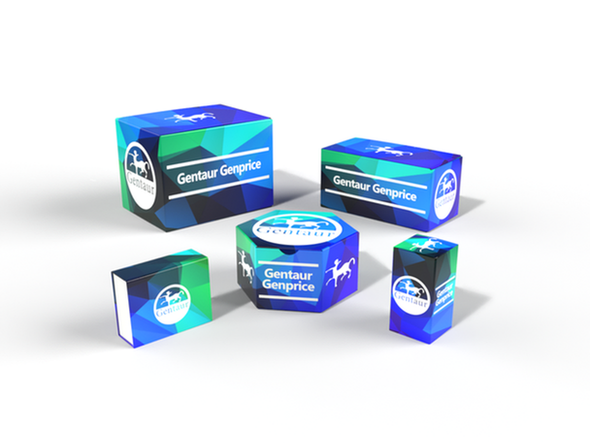Description
DPP7 polyclonal Antibody | BS61759 | Gentaur UK, US & Europe Distribution
Host: Rabbit
Reactivity: Human
Application: WB
Application Range: WB: 1:500~1:1000
Background: Dipeptidyl peptidases (DPPs) mediate regulatory activity of their substrates and have been linked to a variety of diseases including type 2 diabetes, obesity and cancer. DPPs have post-proline dipeptidyl aminopeptidase activity, cleaving Xaa-Pro dipeptides from the N-termini of proteins. DPPs can bind specific voltage-gated potassium channels and alter their expression and biophysical properties and may also influence T cells. DPP proteins include DPRP1, DPRP2, DPP3, DPP7, DPP10, DPPX and CD26. DPP7 (dipeptidyl-peptidase 7), also known as DPP2, DPPII or QPP (quiescent cell proline dipeptidase), is expressed in quiescent lymphocytes and localizes to lysosomes. In response to calcium release, DPP7 can be secreted in its active form. DPP7 exists as a homodimer via its leucine zipper motif and is involved in the degradation of oligopeptides. DPP7 is essential for lymphocyte survival, as the inhibition of DPP7 results in quiescent cell apoptosis.
Storage & Stability: Store at 4°C short term. Aliquot and store at -20°C long term. Avoid freeze-thaw cycles.
Specificity: DPP7 polyclonal Antibody detects endogenous levels of DPP7 protein.
Molecular Weight: ~ 54 kDa
Note: For research use only, not for use in diagnostic procedure.
Alternative Names: Dipeptidyl peptidase 2; Dipeptidyl aminopeptidase II; Dipeptidyl peptidase 7; Dipeptidyl peptidase II; DPP II; Quiescent cell proline dipeptidase; DPP7; DPP2; QPP
Immunogen: Synthetic peptide, corresponding to amino acids 430-480 of Human DPP7.
Conjugate: Unconjugated
Modification: Unmodification
Purification & Purity: The Antibody was affinity-purified from rabbit antiserum by affinity-chromatography using epitope-specific immunogen and the purity is > 95% (by SDS-PAGE) .
Pathway:






